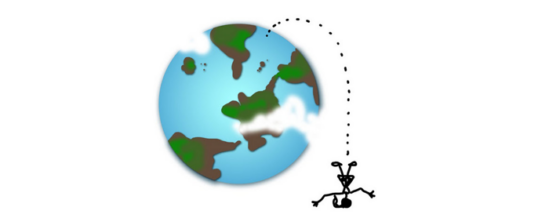
McLeod Group blog by Kirsten Van Houten and Laura Macdonald, March 4, 2021
The Canadian Council for International Co-operation, Canada’s national association of international development and humanitarian organizations, recently rebranded itself as Cooperation Canada (CC), with a new “logo, look and feel” as part in its evolution toward building “a better, fairer, and more sustainable world”. But what else has changed at CC and is it for the better?
Previously hosted by CC, Regional Working Groups (RWGs) helped to connect Canadian development practitioners with actors from the countries where they were intervening through presentations and research opportunities, among other roles. Unfortunately, some of the recent changes introduced by CC have caused them to disengage from the organization.
The RWGs were originally created to bring together Canadian civil society organizations working in the same region on common themes and to “develop collaborative strategies for policy development, dialogue, and advocacy within the Canadian government and multilateral institutions”. They included an Asia-Pacific Working Group, the Africa-Canada Forum and the Americas Policy Group, along with several sub-groups, including the very active Philippines Sub-Group. These groups have long provided a rich source of expertise and analysis from their respective regions and a crucial channel for input into CC’s work from civil society partners from the Global South.
In the autumn of 2019, CC announced that it would be reformatting its Regional Working Groups in response to funding shortfalls. CC indicated that it would roll back the support it provided to the Working Groups, while offering the possibility of creating new ones, based on thematic areas of interest such as financial management and fundraising. As a result, the RWGs have been replaced by more operationally oriented groups. This scaled-back approach de-emphasized advocacy work with the Canadian government, which had been at the foundation of the RWGs. The budget cuts also resulted in the loss of staff members who had played a vital role in supporting the work of RWGs.
Cooperation Canada’s new guidelines, released in September 2020, detail the reduced services available to the Regional Working Groups, and reveal ways in which the new organizational structure may constrain advocacy efforts. While the guidelines encourage them to undertake advocacy, the document advises them to contact the organization’s policy staff for guidance first. The document also instructs any group seeking to use CC’s logo to seek prior approval, effectively limiting the working groups’ independence in their advocacy work. Current and former members of the RWGs consulted for this blog have indicated that these changes in CC’s positions may reflect greater dominance within the organization of larger NGOs with less commitment to policy advocacy.
The RWGs’ response to these changes has been either to leave Cooperation Canada or to fade away. For instance, in August 2020, the Americas Policy Group announced that it would formally separate from CC and operate independently. This decision was made in part based on members’ views of the relative advantages offered by autonomy from the organization in light of its ongoing efforts to limit the groups’ public engagement, and the limited services and staff support that CC would be offering to the groups. The Africa-Canada Forum and the Asia-Pacific Working Group, for their part, have gone dormant.
In addition to the resulting disconnection from Southern voices, these groups had previously served as a space for information sharing and advocacy mobilization, and their departure will surely reduce Cooperation Canada’s analytical and mobilization capacity. For example, under the previous structure, members of the Philippines Sub-Group (part of the Asia-Pacific Working Group) had drafted several open letters to the Canadian ambassador to the Philippines, detailing the deteriorating human rights situation in the country based on information shared with them by Filipino partners during various meetings and events.
Moreover, in June 2020, the co-convenors of the Philippines Sub-Group sought clarification of the Asia-Pacific Working Group’s position on changes to the RWGs. At that point, they discovered that there were no remaining active convenors of the regional group. Ultimately, the members of the Philippines Sub-Group questioned whether remaining part of Cooperation Canada would make much of a difference to their work or access to resources. The new guidelines for working groups state that they are intended for CC members and invited experts only. Leaving the organization would also permit actors who are not Cooperation Canada members, such as academics and smaller organizations and networks, to participate in the group. Internal documents from the Africa-Canada Forum also suggest that some members of that group are also contemplating leaving CC.
An active member of two RWGs told us that the real value of the groups was the varied expertise of members and the ability to connect with others doing similar work on the specific economic, political and cultural contexts. Others suggested that working groups that focused on themes like the Sustainable Development Goals or development financing were pragmatic and interest-oriented, but lacked the mandate to advocate for stronger development policy and practice in Canada.
The potential loss of the RWGs’ policy advocacy work limits Cooperation Canada’s capacity to listen to the voices of civil society counterparts in the Global South and to provide alternatives to the Canadian government’s current policies. This is particularly important in the context of narrowing civil society spaces in places like the Philippines and Latin America, where advocacy is increasingly being criminalized. More than ever, the Canadian government needs to listen to Canadian civil society organizations demanding a more inclusive development policy that addresses the diverse needs of people in different parts of the world. CC should build bridges with alienated members and find better ways to channel voices of its partners and coordinate policy advocacy efforts among its members.
Kirsten Van Houten is the former co-convenor of the Philippines Sub-Group, a Contract Instructor at the Norman Paterson School of International Affairs, and the Global Coordinator of the COVID and Mining Nexus Project. Laura Macdonald is Professor in the Department of Political Science and the Institute of Political Economy at Carleton University.
